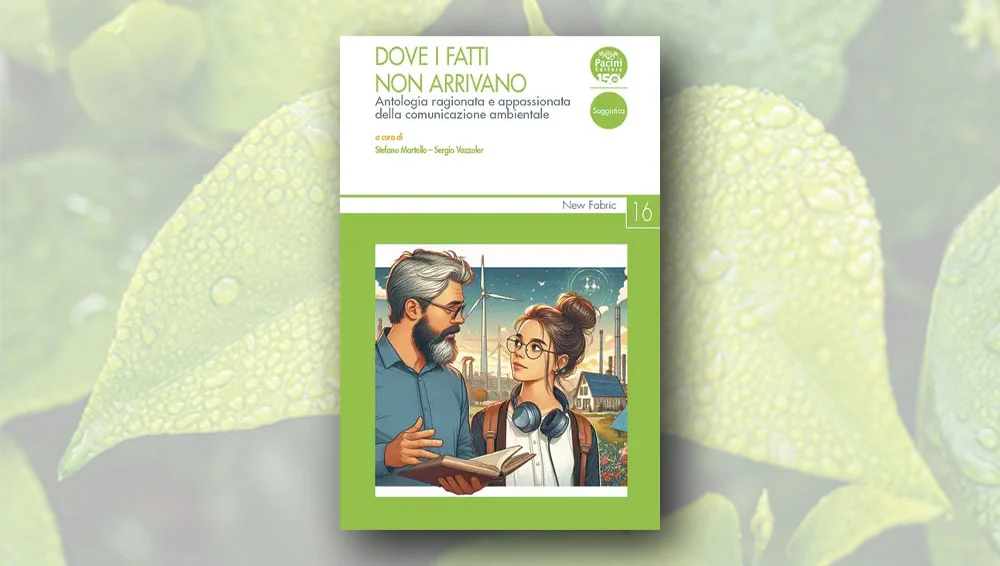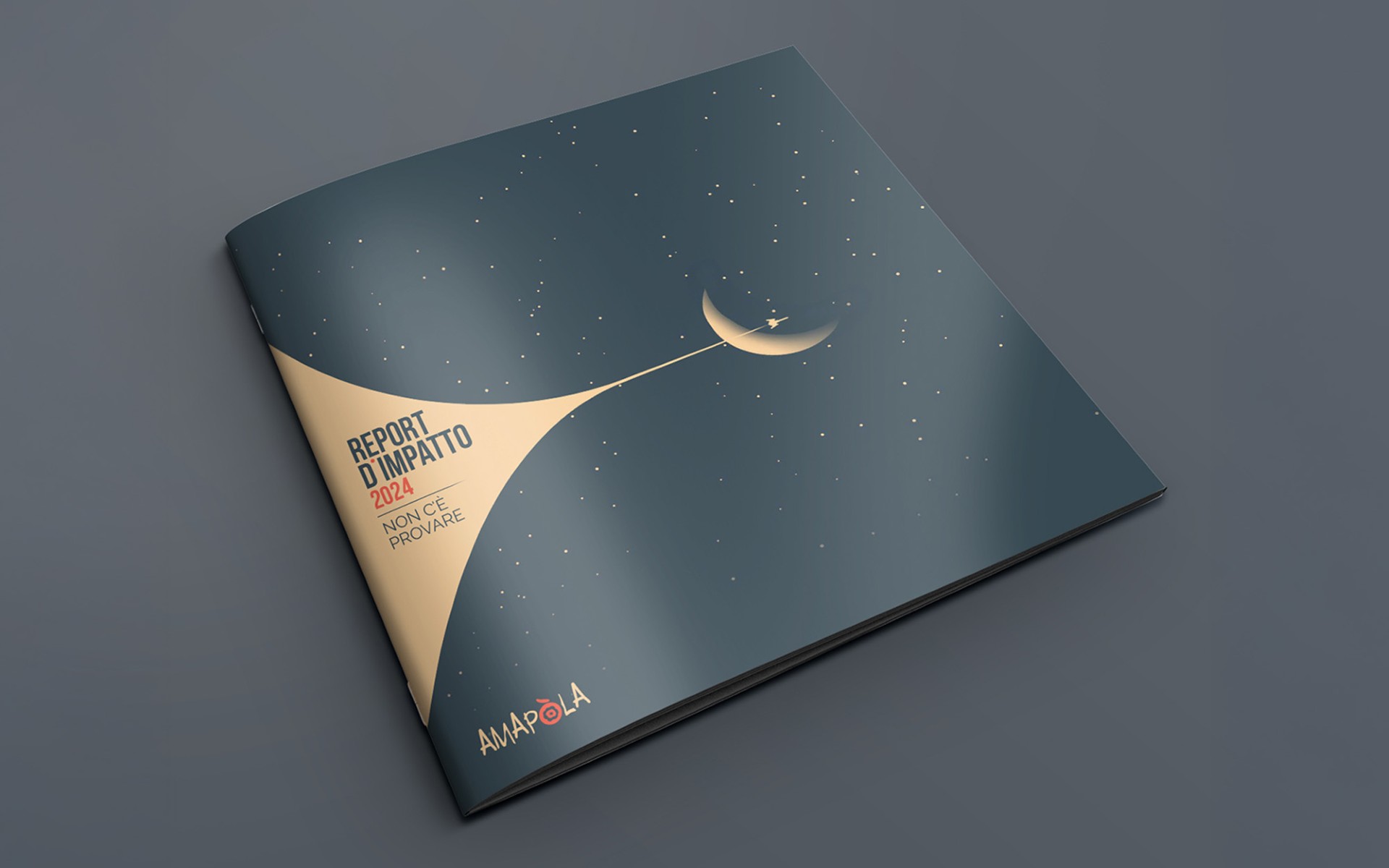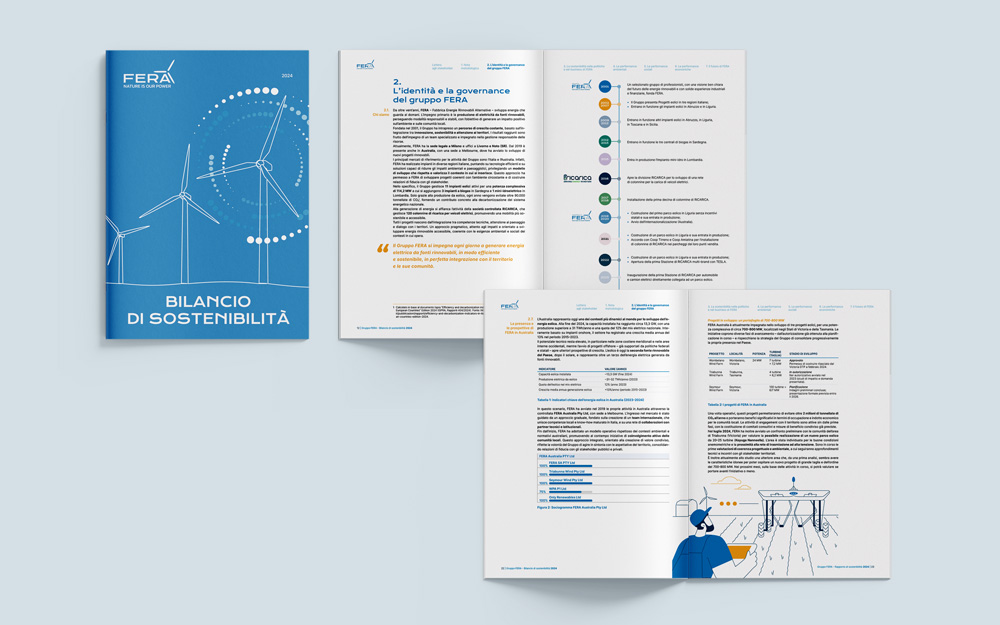When facts aren’t enough: environmental communication is vital | The new book

50 words in a new volume that overcomes the difficulties of the ecological transition and rethinks the role of communication.
There is no sustainable and ecological transition without communication. This is the thesis of the new book entitled “Dove i fatti non arrivano. Antologia ragionata e appassionata della comunicazione ambientale” – When facts aren’t enough. A reasoned and passionate environmental communication anthology – published by Pacini editore and co-edited by Stefano Martello and Sergio Vazzoler. As we make the important transition towards a more sustainable model, communication is the tool that can bridge gaps, eliminate information biases and stimulate a change in behaviour.
The new book is the last volume in a trilogy that began with the “Libro Bianco sulla comunicazione Ambientale” – White paper on environmental communication – (2020) and continued with “L’anello mancante. La comunicazione ambientale alla prova della transizione ecologica” – The missing link. Environmental communication and the test of the ecological transition – (2022). It offers an investigation of 50 words – relating specifically to the processes and challenges of a present that can no longer be postponed – within a hybrid, interdisciplinary discussion, where strategic communication and environmental responsibility have a mutual influence on each other. A genuine manifesto that photographs the existing situation and looks to the future.
Words. Yes, words
Together with 34 contributors (including several Amapolers!), the two editors of the anthology set out to resolve the paradox of the role of environmental communication today. On one hand, they examine the phenomenon of fake news created and fuelled by groups that want to stop or at least slow down the ecological transition. In parallel, environmental communication is also associated with the corrosive practice of greenwashing, which uses misleading storytelling to enhance reputation and image, so deceiving users and consumers.
To combat these distortions and ensure truly transformative sustainability, the mainstream response is to return to the primacy of the facts. A primacy regarding which the book’s editors are sceptical, without however questioning the importance of scientific evidence and empirical data.
Facts and storytelling as part of environmental communication
“The reason we decided to create this anthology,” explains Sergio Vazzoler, “and put the urgent need for words together with the primacy of the facts, was very simple: we realised that too many people talk about communication but forget or are unaware of its original meaning of “making information common knowledge”; mistakenly, they think of reality simply as a series of facts, rather than, to quote Alessandro Baricco, as a combination of facts and storytelling.”
This is why the editors refer to a paradox: when the distorted effects of environmental communication are confused with actual communication, the fundamental collective effort to meet the epic challenge of the ecological transition and sustainable development is undermined. Yet how can the challenge be met if not by patiently making data and experiences, reasoning and feelings, rationality and emotions common knowledge? This is what the editors and the contributors of the book are attempting to do with this reasoned and passionate anthology.
The 50 words
“Besides a number of more technical words relating to methodologies and equipment, there are other softer, more generic terms, which might even seem to be off-topic,” says Stefano Martello. “This isn’t intended as a sly provocation; it is a deliberate choice. A choice with very surprising outcomes, given that unfamiliar and reassuring words have generated ideas and completely unknown or unusual trains of thought, which each reader will have to select, examine, test, recognise or reject.”
Each word is accompanied by one or more analyses: in this case too, the editors have opted for a broad assessment that includes not just the usual reference bibliography, but also literary texts, movies, comic strips, podcasts.
The book is available on the Pacini Editore website: https://www.pacinieditore.it/prodotto/dove-fatti-non-arrivano-antologia-comunicazione-ambientale/
Visit the page and take advantage of the Amapola special discount: https://www.amapola.it/dove-i-fatti-non-arrivano-comunicazione-ambientale/
Dove i fatti non arrivano
Antologia ragionata e appassionata della comunicazione ambientale.
Edited by Stefano Martello and Sergio Vazzoler
Contributors: Giulia Armuzzi, Federica Bosello, Micol Burighel, Pietro Citarella, Matteo Colle, Emilio Conti, Elisa De Bonis, Giulia Devani, Marcella Felerico, Daniele Fiani, Nicola Giudice, Giorgia Grandoni, Roberta Iovino, Fabio Iraldo, Irene Ivoi, Stefano Martello, Alberto Marzetta, Gloria Milan, Giuseppe Milano, Biagio Oppi, Luca Palestra, Leonardo Parigi, Riccardo Parigi, Luca Poma, Massimiliano Pontillo, Roberto Scalise, Francesca Schirillo, Rossella Sobrero, Donato Speroni, Marco Talluri, Francesco Testa, Massimo Vaccari, Luca Valpreda, Sergio Vazzoler
Pacini Editore, 2024
Collana New Fabric
ISBN 979-12-5486-359-6





